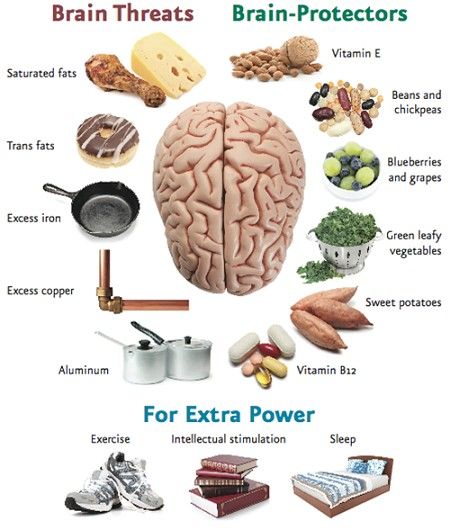
Brain health starts in the mother’s belly and stays critical all through your life. It is crucial on the grounds that it controls each and every capability of your body. The food sources we eat assume a basic part in by and large body improvement. The equivalent goes for mental health too. Certain food sources emphatically influence your child’s memory and learning limit, and others can ruin it. Since your child needs generally fundamental supplements for mental health, an expecting mother’s food decides fetal mind development. In this way, devouring mind quality food during pregnancy can further develop child mental health.
Mental health brings about composed actual developments, mental capacities, social reactions and profound advancement in children. The improvement rises above through a few stages from pre-birth, infant, baby, youth to adulthood. Moreover, the mind directs correspondence, mental abilities, focus, memory, and so forth. Mental abilities incorporate acquiring, getting a handle on power and thinking abilities. There is an immediate connection between mind capability and dietary propensities.
What are Brain-Healthy Foods?
The brain needs adequate nutrition to function efficiently. You can obtain these nutrients from multiple food groups like fish, vegetables, fruits etc. These foods help protect the brain from several diseases because they contain antioxidants like omega-3 fatty acids. In addition, they are also rich in essential minerals and amino acids.
Antioxidants prevent oxidative damage to the brain. They do so by getting rid of excess free radicals. Thus, they prevent degenerative diseases like Alzheimer’s disease and dementia. In addition, omega-3 fats reduce the risk of depression and stress. Studies suggest that they also help in the treatment of depression.
Fish
Fish is an excellent source of omega-3 fatty acids. Studies suggest that omega3 fatty acids help reduce inflammation. In addition, they improve the function of neurons in the brain. They also enhance the secretion of hormones like serotonin, which improve mood. As a result, fish in your diet supports memory and learning.
Fish also contains a good amount of antioxidants, reducing the harmful effects of free radicals. As a result, they reduce oxidative damage to the brain, preventing diseases like Alzheimer’s. Salmon, sardine, tuna, mackerel are examples of a few fish excellent for your brain health.
Eggs
Studies show that amino acids in eggs are essential for the secretion of neurotransmitters. Our bodies get essential amino acids from protein, and eggs are an excellent source of protein. Neurotransmitters pass nerve impulses from the brain, which are necessary for communication between the brain and body. For example, neurotransmitters like dopamine and serotonin help reduce depression and anxiety.
Eggs also contain vitamin B and choline, which help boost memory and concentration. As per studies, cacao has reasonable amounts of flavonoids, beneficial for brain health. They help nerve cells work better. In addition, flavonoids help improve memory, cognition, and learning.
Peanut Butter
Peanut butter is rich in vitamin E, which help with cognitive performance and reduces stress levels. In addition, peanut butter contains thiamine. Studies show that thiamine helps improve glucose utilisation by the brain. Furthermore, it is crucial for enzyme secretions that help maintain healthy brain functions.
Peanut butter also contains high protein, which helps form neurotransmitters that help send nerve signals.
Oats/Oatmeal
Oats help in the optimum functioning of your brain. Oats are laden with vitamins E, B complex, and zinc. These vitamins play roles in brain function in multiple ways. For example, vitamin E is an antioxidant that helps maintain your brain health by preventing oxidative stress. Oxidative stress may induce brain diseases like Alzheimer’s, anxiety, memory loss etc.
Vitamin B helps in the synthesis of neurotransmitters. For example, dopamine and serotonin are effective in memory and concentration. They also help to reduce your mood swings. Additionally, oats contain fair amounts of zinc. Studies suggest that zinc improves brain development. Therefore, it is an essential nutrient for pregnant mothers. Zinc helps in the prevention of congenital disabilities too. So, not to forget, a baby’s diet should include zinc-rich foods for brain development.
Berries
Berries, especially blueberries, strawberries, cherries etc., are rich in vitamin C, antioxidants, and omega-3 fatty acids. All these contribute to brain health and function. For example, studies suggest that vitamin C can protect health by preventing diseases like ischemic stroke, Alzheimer’s, Parkinson’s etc.
Vitamin C also helps fight depression, one of the primary reasons for memory loss. In addition, antioxidants protect the brain cells from radical injury. Therefore, vitamin C in berries plays a role in preventing degenerative brain disorders. Also, eating berries before bedtime is a good practice, which results in improved sleep quality and affects optimal brain functioning.
Green Leafy Vegetables
Leafy greens such as kale, spinach, green lettuce, and broccoli are rich in brain-healthy nutrients like iron, vitamin K, A, folate, and beta carotene. Research suggests these plant-based foods may help slow cognitive decline.
Leafy greens also contain reasonable amounts of iron. According to research, iron improves brain function. Also, iron is essential for various brain activities like DNA synthesis and cell division. Consequently, iron maintains the brain’s energy levels.
Furthermore, these vegetables are also rich in antioxidants. So, adding them to your daily diet helps improve the health of brain cells. They are also good magnesium, selenium, and zinc sources, which enhance brain functions.
Zinc is vital in the transmission of impulses and signals in nerves. It is also essential for nucleic acid metabolism and cell division. Unfortunately, zinc deficiency impairs DNA and protein functions that may affect brain growth and functions.
Whole Grains
Whole grains such as oats, barley, millets etc., provide energy and B-vitamins. These aid in the smooth functioning of the brain. B vitamins help to increase neurotransmitter production and help prevent memory loss. In addition, the vitamin B complex helps improve degenerative diseases like Alzheimer’s and dementia.
Meat and Dairy Products
Meat and dairy products are good sources of protein. Additionally, they also contain iron and zinc. Both are crucial in improved brain cell functions. Also, they impact nerve cell formation and nerve signal transmission. They also boost memory.
Several studies show that meat contains amino acids like glycine and serine. Amino acids are essential for the function of neurotransmitters. So that connects meat and dairy products to brain health. However, red meats and full-fat dairy are also high in saturated fats and calories. Therefore, you should consume them in moderation.
Pumpkin Seeds
Pumpkin seeds are rich in zinc and magnesium. They also contain B vitamins and amino acids. Research suggests that magnesium improves depression. In addition, it helps produce serotonin, a kind of neurotransmitter that improves mood and regulates sleep.
Vitamin B complex promotes the breakdown of amino acid homocysteine. Excess levels of this enzyme trigger dementia and Alzheimer’s disease. It also impairs your cognitive skills. B vitamins help information of enzymes. Tryptophan is another amino acid that prevents depression and anxiety.
Broccoli
Broccoli has high amounts of vitamin K. Studies show that broccoli has high glucosinolates- natural compounds. It effectively limits the breakdown of acetylcholine, a neurotransmitter necessary for the smooth functioning of the nervous system. It contributes to brain functions and sharp memory. Low levels of acetylcholine may cause Alzheimer’s. In addition, cauliflower, sprouts, and kale are also foods rich in glucosinolates.
Sage
Sage is well known for improving memory and concentration as it contains L-theanine, an amino acid. Studies suggest that this compound reduces stress and anxiety and relaxes your brain. In addition, it crosses the blood-brain barrier to enhance neurotransmitter activity.
Green Tea
Green tea is an excellent drink with multiple health benefits. According to research, it contains L theanine which enhances attention span, alertness and memory.
Green tea also contains polyphenols and other antioxidants. It also helps prevent mental stress. In addition, antioxidants prevent radical cell injury to brain cells. Therefore, this reduces the risk of diseases like Alzheimer’s and Parkinson’s.
Curcumin
Turmeric contains curcumin that helps prevent cell injury. In addition, the antioxidants like polyphenols in turmeric neutralise free radicals. They prevent oxidative stress due to free radicals, preventing any cell injury to the brain.
They also have anti-inflammatory properties. Studies suggest that curcumin prevents plaque on neurons, preventing cell injury, cell death, and memory loss. In addition, curcumin reduces age-related damage to the neurons. Otherwise, it may clog the nerve cells.
Easy Ways to Consume Brain Healthy Foods
There are multiple brain-healthy foods. So make a note and start making minor changes to keep your brain healthy and agile forever.
Include vegetables in your salads and soups. You can also add them to your sandwiches. Start taking fruits and nuts as snacks. You can powder nuts and sprinkle a spoonful in your drinks or meals. You can also include fish and meat in your soups or as broth.
Brain Healthy Food Recipes
The foods you eat are crucial for every aspect of your health. What you eat affects your brain health. Let’s find a few simple recipes to include brain-healthy food in your diet.
Leafy Salad with Walnuts

Salads are the simplest and easiest combination of brain-healthy food. They can be innovative and combine the goodness of vegetables, berries and nuts.
- Preparation time: 5 minutes
- Serves: 1
Ingredients
- Green Lettuce (chopped): 2 cups
- Sage Leaves (Torn): 1-2
- Cherry Tomatoes: 6
- Diced Cucumber: ¼ cup
- Strawberries (Sliced): 3
- Walnuts (chopped): ⅓ cup
- Pumpkin Seeds: 1tbsp
- Olive Oil: 1tbsp
- Salt and Pepper: As per taste
Method
- Mix lemon, olive oil, salt and pepper for the dressing
- Take the rest of the ingredients in a big bowl, add the dressing, toss and serve immediately.
Potential Side Effects and Precautions
Consume any food in recommended doses. However, excess consumption of any dietary supplements can be harmful. For example, it can lead to an allergic reaction or any other discomfort. Therefore, you should practice portion control and watch out for triggers. Consult a physician in case of any side effects.
Shellfish Allergy
Seafood is beneficial for brain health. However, if you are allergic to shellfish, it’s advisable to avoid it. Studies suggest that shellfish allergy has symptoms such as:
- Nausea
- Vomiting
- Diarrhoea
- Pain
- A reversed sensation of temperatures
Peanut Allergy
Some people are allergic to peanuts. Peanut butter is also not advisable for such people. Studies suggest that symptoms may include:
- Urticaria
- Swelling
- Tingling feeling
- Breathing difficulties
Drug Interactions
Certain foods interact with medications. For instance, vitamin K and warfarin cause adverse health outcomes. Therefore, if you are on medications, talk to your doctor. Find out possible drug reactions to prevent any mishaps.
Summary
Healthy eating habits are essential for your overall health. A healthy, nutritious and well-balanced diet helps your physical and mental health. In addition, it’s vital for the healthy functioning of your brain. Therefore, your diet impacts your brain health significantly.
Some foods that are not healthy for your brains are refined flour, sugars, unhealthy fats, and junk foods. It results in impaired brain functions like memory loss, learning disabilities etc. By making simple dietary changes, you can prevent such problems.
There are several brain-healthy foods. Few of these include nuts, fruits and vegetables. However, people with food allergies need to be cautious. In addition, consult a doctor if you are on any potent drugs to prevent any adverse reaction.


